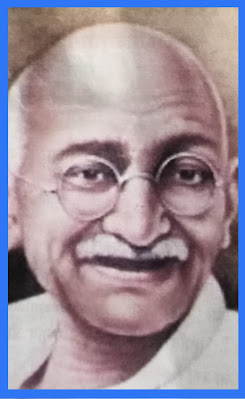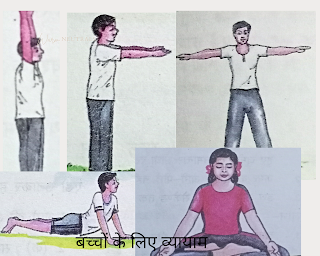2nd October Gandhi Jayanti
2nd October Gandhi Jayanti
2 October is celebrated every year as the International Day of Non-Violence. In India, this day is a national holiday i.e. banks, offices, schools etc. remain closed. But like 15 August and 26 January, this day is also celebrated as a national festival. Let us find out more about why this day is so important.
October 2, the birthday of the Father of the Nation Mahatma Gandhi and International Day of Non-Violence
Mahatma Gandhi, whom we know as the Father of the Nation and Bapu, and who played an important role in getting the country's independence by following his non-violent rules, was the birthplace of the Father of the Nation, Mahatma Gandhi.Therefore, we celebrate this day as his birthday. It was Bapu who taught the whole world to follow the path of non-violence and gave the message that one can be defeated even while walking on the path of non-violence, so on this day
Biography of Mahatma Gandhi
The full name of Mahatma Gandhi is Mohandas Karamchand Gandhi. He was born on 2 October 1869 in Porbandar, Gujarat. His father's name was Karamchand Gandhi and mother's name was Putlibai. He was a promising student since childhood. After completing his matriculation in India, he completed his law studies from South Africa. He was married to Kasturba Gandhi. They had four sons.
Role of Mahatma Gandhi in the National Movement
When Mahatma Gandhi returned to India from South Africa, there was political turmoil in India, there was an atmosphere of chaos all around. He returned to India in 1915 AD, from then till the time of independence, he participated in the following movement
- In 1917, he inspired the farmers to struggle in Champaran because they were unable to pay the rent due to the plague epidemic and were being exploited unnecessarily.
- In 1919, he decided to launch a Satyagraha movement against the Rowlatt Act.
- In 1920, he started the non-cooperation movement, according to which Indians were not to cooperate with the British in any work. Hundreds of Indians resigned from English jobs, stopped teaching in English schools, to support this movement. Gradually this movement started moving from non-violent to violent and for this reason Gandhiji had to withdraw this movement in 1922.
- On 6 April 1930, he started the Civil Disobedience Movement by breaking the salt law by traveling to Dandi. Civil disobedience means doing humility, that is, not obeying anyone with love.
- In 1942, he started the Quit India Movement in which his only slogan was 'Britishmen Quit India'.
It is absolutely true that revolutionaries walking on the path of violence like Bhagat Singh and Chandrashekhar Azad had a great contribution in liberating the country, but these movements of Mahatma Gandhi walking on the path of non-violence.
Partition of India and Mahatma Gandhi
The British had decided to liberate India on 15 August 1947, but due to the mutual struggles of Mohammad Jinnah and Jawaharlal Nehru and the diplomatic moves of the British, India and Pakistan became the weight of these two countries. When the country became independent, he kept himself locked in a dark room because he was not happy with the freedom that came with the partition.He said that due to the diplomatic trick of the British, both the countries of India and Pakistan will continue to struggle, due to which India will never be able to make its full development.
death of mahatma gandhi
On 30 January 1948, 6 months after the country's independence, when Mahatma Gandhi tried to get himself out of the dark and anonymous life, at the same time some chaotic elements conspired to assassinate him. As a result of this, Nathuram Godse shot and killed him. This day is still celebrated as Martyrs' Day.
Some rules of Mahatma Gandhi
Mahatma Gandhi was a priest of non-violence and religion. He had unwavering faith in the name of Ram. He believed that for the progress of Indians, the love of indigenous goods is necessary in them, so they themselves started spinning yarn with a spinning wheel.
The path of non-violence was very dear to him, according to him, while walking on the path of non-violence, if one does not harm others by suffering himself, then this leads to a change in the heart of the person in front and he himself commits violence.
Gandhiji was very firm on time, he used to complete all his work on time. In his ashram, he had made such strict rules that if anyone returns to the ashram after a while, he should not even get food.
Gandhiji was of the opinion that we should always keep doing our work and remember our Lord while doing our work, this keeps our mind calm and free from many types of dualities.
Gandhiji used to sing this hymn with love while spinning yarn on the mill.
रघुपति राघव राजाराम, पतित पावन सीताराम।
ईश्वर, अल्लाह तेरो नाम सबको सन्मति दे भगवान!
2 October also the birthday of Lal Bahadur Shastri
On 2 October 1904, the second Prime Minister of India, Lal Bahadur Shastri was born. Lal Bahadur Shastri cooperated in many movements for the independence of India and after independence he was elected the second Prime Minister of the country. He gave the slogan 'Jai Jawan, Jai Kisan'.


Comments
Post a Comment